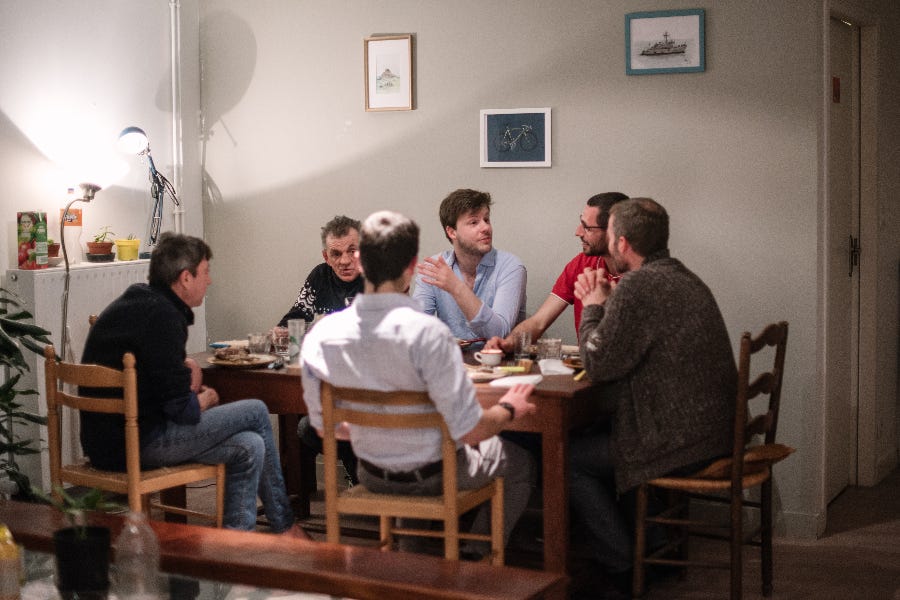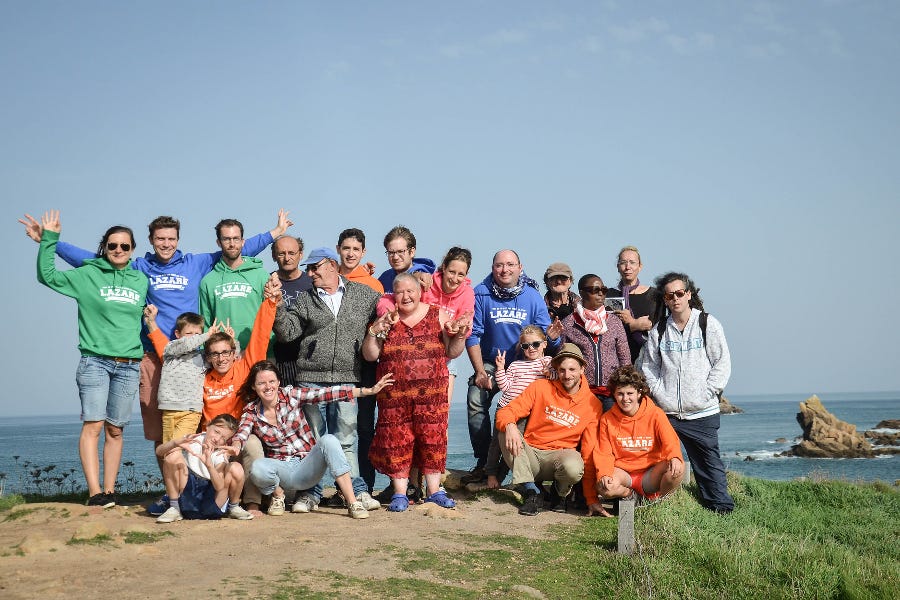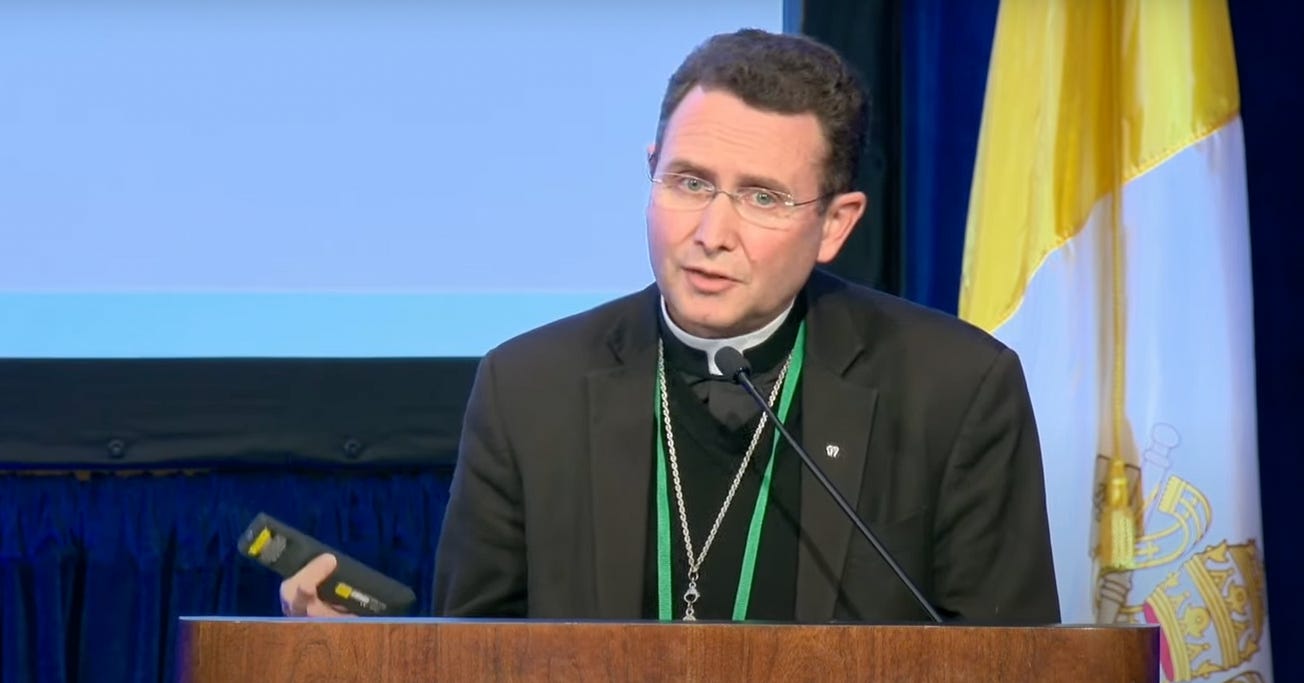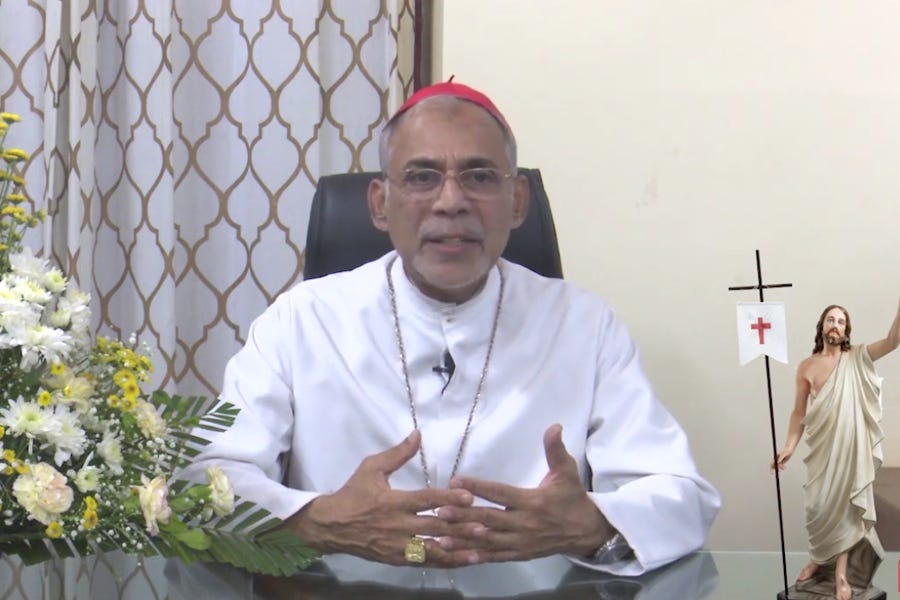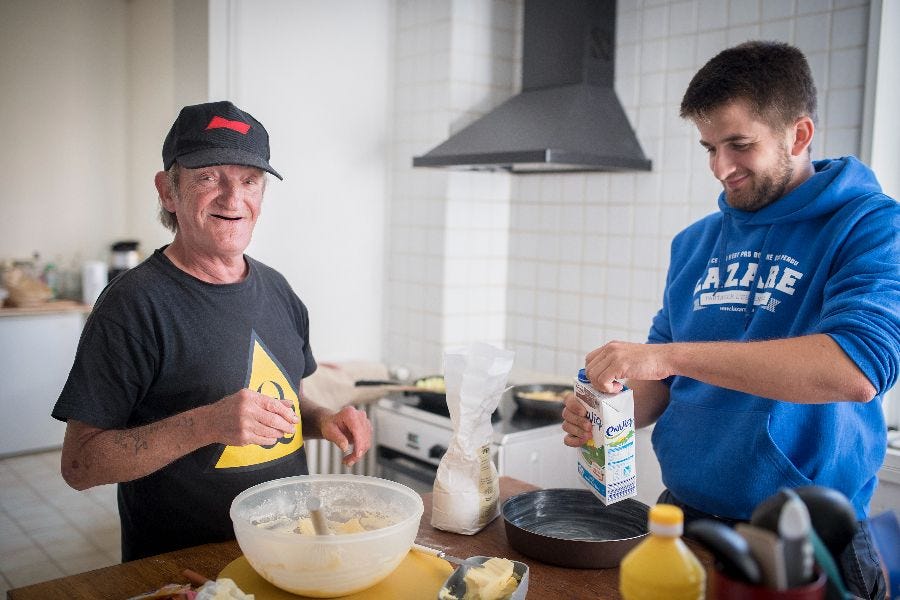
The French Catholic Church is much diminished. Yet French Catholicism remains a powerful creative force.
The Lazarus Association is one expression of its continuing inventiveness. The organization is pioneering a new approach to homelessness that has transformed the lives of hundreds of people, won papal approval, and spread across Europe.
It began in 2006, when two young Frenchmen — Étienne Villemain and Martin Choutet — felt called to help the homeless in Paris.
“They both had the desire to establish a genuine bond with others ‘on an equal footing,’ to live poverty with simplicity, and to live out this ‘mission’ prayerfully,” Sibylle de Malet, the association’s international manager, told The Pillar.
A Catholic parish lent the two men an apartment and they moved in with four men with precarious housing situations: Yves, Karim, Rabah, and Valery.
The arrangement was unsurprisingly challenging at times. One day, Étienne Villemain — who would later inspire Pope Francis to establish the World Day of the Poor — returned from work to find Karim brandishing a gun. He knew that Karim came from a violent background: as a youngster he witnessed his father strangling his two-year-old sister and then taking his own life. He had grown up in shelters and struggled to express his feelings.
Karim soon reassured Villemain that the gun was plastic. “But I have a question for you,” he said, “who pays you to live with me?”
“Karim didn’t know friendship, this free and loving relation with others, which was the source of his human reconstruction,” commented Malet. “That’s how our adventure started.”
The transformation of Fred
Out of that experiment was born the idea of an organization that would bring together homeless people and young professionals to live under one roof.
The Lazarus Association was formally established in France in 2011. Some 250 people are currently living in its shared apartments in 16 cities in France, Belgium, Spain, Switzerland, and Mexico.
Each home is single-sex and accommodates between six and 10 people, known in French as “colocs” (housemates).
“Half of our residents have been homeless or experienced socio-economic insecurity, and the other half are young working adults who volunteer with the organization,” Malet explained.
“Everyone has their own bedroom, and a stable standard of shared living where privacy and freedom of choice are respected. The living room, kitchen, and bathroom are shared. We treat all our housemates equally – housework is divided fairly, and everyone pays the same affordable rent.”
In purely statistical terms, the shared homes are remarkably successful: 85% of homeless people go on to find a permanent place to live; 46% find employment or training; and 95% say they are either happy or very happy living with the young professionals.
Malet cites the example of a man named Fred who was homeless for five years.
“He didn’t believe in life, in people, and in himself anymore,” she said. “Three years ago, he moved to a Lazarus home. He found out that people believed in him and he could help others. Since then, he has got new papers, found a job, and was reunited with his family. On Sept. 23, he’s going to move to new accommodation. He is about to publish a book about his life.”
Meeting Lazarus
Malet was drawn to the Lazarus Association after she experienced the 2008 economic crisis while living in Spain. In a period that’s been called “the Great Spanish Depression,” she met many homeless people and became friends with them. She was struck by their negative self-image and despair at their situation.
“I wanted to show them we were all equal and important to the society and to God,” she recalled. “For me, the best way was living together, in simplicity, confidence, and respect.”
“When I went back to France, I met Lazarus, a very small project at this time. I decided to live there. Seven years ago, I started working for the project, opening houses in France and abroad.”
Malet said that the association’s approach to safety has evolved greatly since Karim waved around the plastic gun. It works closely with social services, ensuring that its residents are psychologically stable, not violent, and receiving ongoing treatment for addictions.
All residents must undergo training regarding security, hygiene, and potential medical emergencies.
“A support family lives on-site and is responsible for the security of the flats. They are connected with specialists and the social workers who follow up the residents,” she explained.
“If someone wants to come, he or she gets an interview. We explain the rules. If you don’t respect them, you remove yourself. The social services help you to find another place to live. If there is an emergency, the family is able to fire someone. But, usually, there is no big problem.”
‘This fire of love’
Pope Francis has shown the association his favor several times in recent years. He addressed its members twice in the space of a few months in 2021.
In May that year, he told them that it was a joy to see people committing themselves “to living the experience of service and fraternity.”
“Going towards others in the situations in which they find themselves and forming a family in which harmony and the joy of living together reign, you participate in the Church’s mission to go out towards the peripheries of our society,” he said.
In August 2021, he described them as “the loving face of Christ.”
“So spread around you this fire of love that warms cold and dry hearts,” he urged. “Do not be satisfied with just a life of friendship and sharing between the members of your association, but go further.”
“Dare to take a chance on love given and received freely. Go out to the peripheries, which are often filled with loneliness, sadness, inner wounds, and loss of the zest for life. With your words and actions, pour the balm of consolation and healing on tormented hearts.”
Malet said that the association’s members have stayed twice at the pope’s residence, the Casa Santa Marta.
“We know each other and I think we’ve created a real relationship,” she said. “He knows the Lazarus project very well.”
“Pope Francis is the pope of the poor, of the peripheries. In fact, in our homes, we welcome people who come from peripheries… He is also the pope of social friendship and encounter. He wrote an encyclical specifically on this subject, Fratelli tutti. He said to us we are a showcase for this social friendship.”
“We live with people from the peripheries and we create a friendship with the poorest people. We make the bridge between those two important things for him.”
“Also, he chose the name Francis and his greatest wish is a poor Church, for the poor. Lazarus is probably an illustration of what he wishes for the Church today.”
The collaboration with Pope Francis has even extended to a book. “Des pauvres au pape, du pape au monde” (From the poor to the pope, from the pope to the world). The volume, which soon will be released in English, contains the pope’s answers to questions from poor people in 80 countries.
Malet highlighted a question from a man called John who overcame alcoholism. “What can I do for you?” he asked the pope.
Francis answered: “‘What can I do for you?’ you ask. That is the testimony of a holy heart, a healed heart. What can you do? Proclaim the wonders of God. This is what Jesus said to the possessed man of Gerasa who wanted to follow him as his apostle: stay here and announce what you have experienced: your healing. The obligation of everyone in a similar situation is to announce, to give testimony.”
The association is about to establish its first home in the U.K., in London. But although there is a base in Mexico, the organization has yet to put down roots in the United States.
Malet invited anyone interested in launching a project in the U.S. to contact the association. She said she believed that Lazarus could be the answer to the profound loneliness experienced by America’s homeless population.


